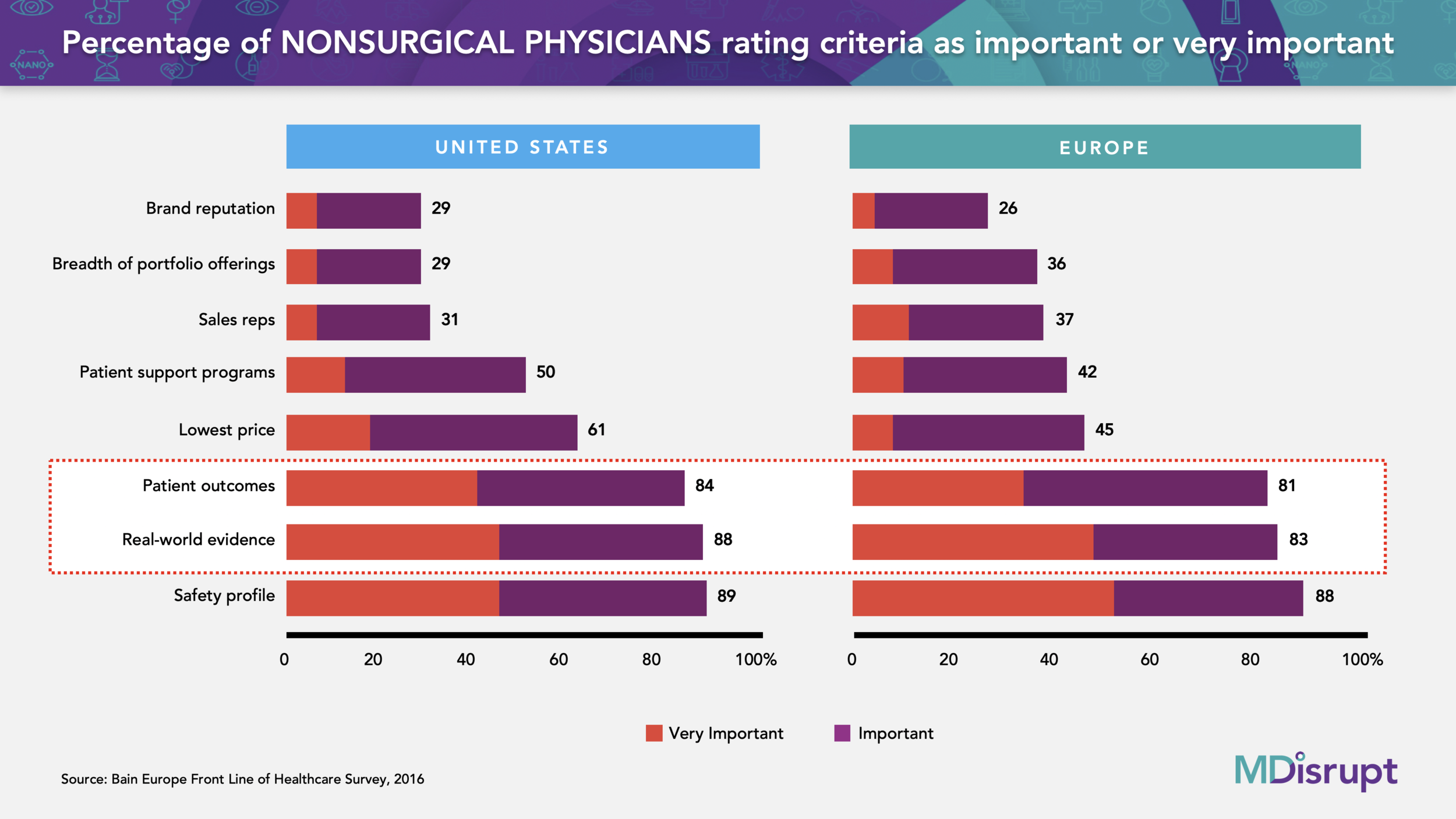“Great discoveries and improvements invariably involve the cooperation of many minds.”
—Alexander Graham Bell
Medicine is shifting toward a more personalized, value-based experience. As this transformation continues, healthtech companies need to be able to communicate the value and clinical differentiation of their solutions more effectively. This will require incorporating healthcare experts, who are usually hired into medical affairs roles.
This, in turn, will require tight collaboration between the medical affairs group and other groups within the company, including commercial, R&D, market access, and product teams. Katie Anders, the head of medical affairs strategic solutions at Medscape, said, “Today, medical affairs must liaise with their R&D colleagues and fully grasp the science that supports their work. They need access to real-world data. They need the strategic thinking abilities and insights of their marketing counterparts, and the customer-facing skills of those in sales. And they must understand and operate under all of the rules and regulations governing industry interactions.” The healthtech companies that adopt this strategic model will ultimately create more clinically and commercially viable healthtech products and increase their chance of widespread adoption.
The importance of generating real-world data
According to Bain & Company (see figure below), 88% of US physicians consider real-world evidence a top criterion in their prescribing practices. Within a healthtech company, medical affairs can play a key role in helping to generate the real-world evidence required for health products to be widely adopted in the marketplace.

Furthermore, medical affairs experts are poised to help educate not only physicians, but also payers, to identify relevant data and real-world applications for higher quality patient care.
An overview of the medIcal affairs role
In health companies, medical affairs departments evolved to serve as an independent counterbalance to sales and marketing departments. In FDA-regulated companies, specific laws dictate the claims that sales/marketing can discuss versus the information and indications that medical affairs is allowed to discuss.
Medical affairs very specifically never carries a quota and their KPIs are not based on sales performance or projections. The healthcare industrial complex is conditioned to expect different things from a medical affairs professional than from a sales/marketing professional—it is almost impossible for a single individual or department to serve both roles effectively, since the natural tension is part of a successful balance.
The essential elements of the medical affairs role are to:
-
Be the voice of and advocate for the patient. For example, would you want your doctor to be acutely aware of the likelihood of a false positive result? If so, then medical affairs needs to be the voice for the company’s collateral to meet this need.
-
Represent the needs and concerns of healthcare professionals
-
Be trusted by our healthcare professional clients.
The cross-functional role of medical affairs
If medical affairs departments are deployed and embraced strategically within a healthtech company, they can play a critical role in various aspects of the organization, including:
-
Business development Accelerate business development efforts when assessing new technologies for acquisition
-
KOL programs Engage and develop KOL-led sites to generate appropriate, necessary data proof points required for successful go-to-market strategies. This data generation allows the healthtech company not only to showcase its capabilities to other physicians, but also to payers for reimbursement strategies
-
Medical content Provide support for marketing in reviewing content and advising on messaging that resonates with target medical audiences
-
Product development Be a core part of the product development process to help make products with the correct product-market fit that truly solve problems in health care
-
Market access Foster an understanding of the reimbursement landscape and provide the scientific messaging and dossiers so that payers understand the added value and ROI of their technology.
-
Stakeholder education Educate physicians and other potential stakeholders in health care. Help educate the leadership and commercial teams on how to accurately and effectively communicate about the technology with their customers.
-
Spreading the word, scientifically Medical affairs team members can also be medical spokespeople at conferences and with the media, by writing articles for scientific and medical journals as well as speaking at medical society meetings.
The value that medical affairs can bring to a healthtech company
McKinsey & Company interviewed numerous medical affairs executives to create a 2020 vision for medical affairs. Collectively, they identified four aspirations that would create the most value for their organizations as well as the industry as a whole:
- Enhance patient access to, and best use of, optimal medical treatment
- Embrace patient-centric healthcare
- Facilitate coordination and integration of different medical data and types of knowledge
- Acquire and develop talent
Along with broadening the spectrum of external stakeholders with which medical affairs interacts, healthtech companies that strive for increased internal interactions will further excel. These examples show how medical affairs can provide significant value to healthtech companies:
-
To further enhance patient access: medical affairs can collaborate with market access efforts to demonstrate economic and medical value.
-
To embrace patient-centric healthcare: medical affairs can collaborate with marketing colleagues to create collateral that integrates patient advocacy groups.
The preferred way to engage with healthcare professionals is changing; the primary focus is now on improving health outcomes for a greater portion of the patient population. If medical affairs collaborates with internal forces to provide business intelligence, business development, marketing, market access, and sales with a more patient-centric perspective, medical affairs’ value within the organization will increase. Providing real-world data, and increasing access to it, creates an opportunity for medical affairs leaders to leverage data while continuing to establish and maintain trust with external stakeholders and the medical community.
Medical affairs professionals who want to lead the change must be involved in various projects across the organization and communicate not only to the medical community but also to colleagues within the organization. This collaboration will only become more critical as therapeutics increase in complexity and as big data is utilized to assess outcomes in a value-based system.

Daniela Crandall MHS, PA-C
MDisrupt Guest Blogger
As a clinician, I’ve cared for patients in outpatient, operating room, and inpatient settings. As a sales director in healthtech, I created strategic direction and handled tactical business plan administration and talent management. As a director of medical education, I was in charge of training strategies for both sales professionals and surgeons. Medical affairs experience included engaging KOLs, making C-suite level presentations, and engagement with healthcare systems, payers, and medical device executives.
Incorporating medical affairs into your company
If you are in the healthtech industry and want to assess the value of increasing medical affairs involvement with your organization, consider engaging with our consultants. We all want to provide the highest-quality care for patients; having medical affairs experts work closely with your company can accelerate the widespread adoption of your health product. Talk to us—we can help.



